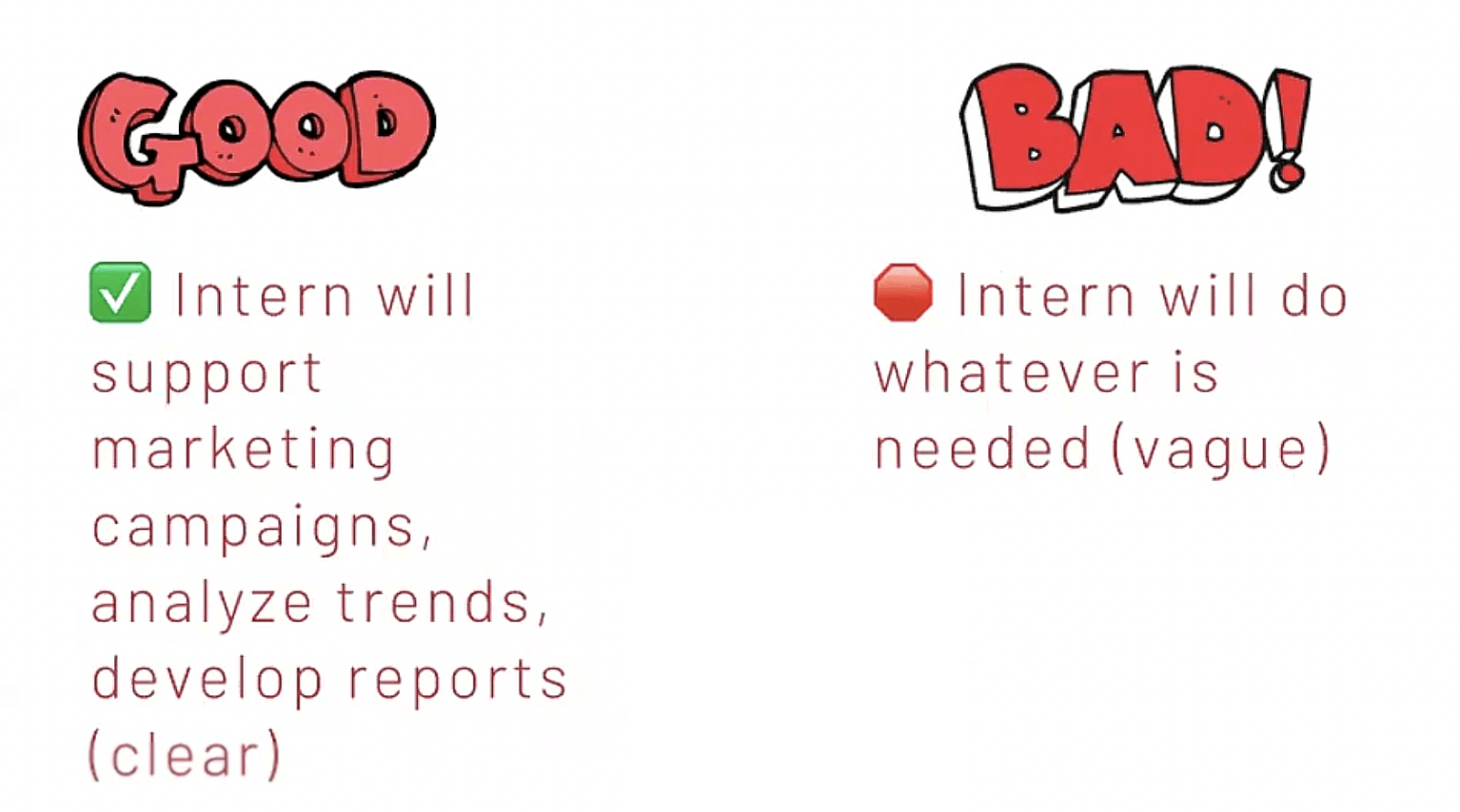Creating Impactful Internships in Auxiliary and Summer
SPARC Senior Advisor Karen McCann McClelland has learned a lot about how to run an internship, having overseen many of them as Director of Auxiliary Programs at Sidwell School. "Often, what happens in a program is someone will say, 'We need help with social media. Let's hire an intern!'"
As Karen and Krystal Speed, CEO of Your HR Strategist, explained in a recent SPARC working webinar, this approach is not likely to result in the best experience for either the intern or the program. "It's important to be very intentional when crafting an internship," Karen says, stressing that we need to lay the foundation for success before the intern even arrives.
The Setup for Internship Success

According to Karen and Krystal, a successful internship experience requires crafting an intentional structure that meets four criteria: clear learning goals, meaningful work, structured support and supervision, and growth opportunities.
1. Clear Learning Goals
As Karen states, "Make sure you have the 'why.'" To do this, consider how an internship can align with and be an extension of you and your mission--one of serving students and their families. Be clear from the beginning how the internship is crafted, what the intern's responsibilities will be, and what goals they will be expected to achieve by the time they're finished.
The slide above offers an example of how to define responsibilities. “Intern will support marketing campaigns, analyze trends, and develop reports” is detailed and illustrates intentional planning of the intern's time and tasks. “Intern will do whatever is needed” shows the opposite--only a vague idea of needs to fill in the organization, but no statement about what those needs are, how the intern will assist, or what the goals of the internship are.
Both Karen and Krystal strongly advise creating paid internship programs. One reason is the added incentive and implied value that a paid position brings. Also, an unpaid internship carries strong legal guidelines that require detailing how it will benefit the student and contribute to their career goals.
2. Meaningful Work
Krystal offers an example of an organization that needed to digitize a large number of paper files. It seemed like the perfect reason to hire an intern. "But what is that experience like for the intern?" she says. "What are they learning? What goals are they meeting for their own studies or career?"
Hiring someone only to do busy work may fill a temporary need, but it won't create a meaningful experience for the intern or the program. "One of the great things about interns is they bring in great energy and fresh ideas," Karen says. While busy work may be one of their tasks, they should also have opportunities to learn and develop professional skills that will benefit them later. For the best outcome, craft the internship around their skills and goals and how they benefit your program. What projects do you and your staff dream of doing but can't seem to get to? What skills does the intern bring that could help toward brainstorming ideas or jumpstarting projects? Could they help with communications, marketing, or other tasks?
Integrating the intern into your program--making them feel like a vital part of your group--will lead to a more fulfilling experience both for them and for your staff.
3. Structured Support and Supervision
To ensure a successful experience, the intern needs training, support, supervision, and feedback. A supervisor should be in charge to check in regularly to answer any questions, help them through challenges, and provide feedback on their progress. If possible, providing someone to mentor the intern by allowing them to shadow their work, introducing them to colleagues and other interns, and to help them reflect on their experience and how it benefits their future career creates the most fulfilling and meaningful experience.
Take time to train the intern at the very beginning, allowing space for them to become familiar with the environment and their co-workers. "For many interns," Karen says, "this is their first real job, their first time in an office working with adults." Make sure they know whom to approach with questions or concerns, what their responsibilities are, and what they are expected to achieve during their time in your program.
4. Growth Opportunities
An internship is a great opportunity to show a young adult what a future job might be like, what a real-world experience could be, and what impact they could have. Help them network by introducing them to those in your program and in other departments to expose them to all facets of what makes a school run. Make them feel like a part of your professional team and that their contribution as an intern matters.
Consider, too, that internships in auxiliary programs could be an effective and powerful way to usher in a new generation of auxiliary professionals who, from a young age, are trained and have experience in how auxiliary and summer programs are run. Internships are a great chance to advocate for the work of auxiliary professionals, the impact of their programs, and to directly contribute to the long-term stability of those programs.
"Imagine," Karen says, "if every one of our 250 member schools created auxiliary and summer internships. Imagine the impact we could have on the next generation of auxiliary leaders, their programs, and the value of auxiliary in independent schools."
Gain access to valuable roundtables like this one--as well as webinars, professional development tools and resources, and empowering community support--by becoming a SPARC member school today!
